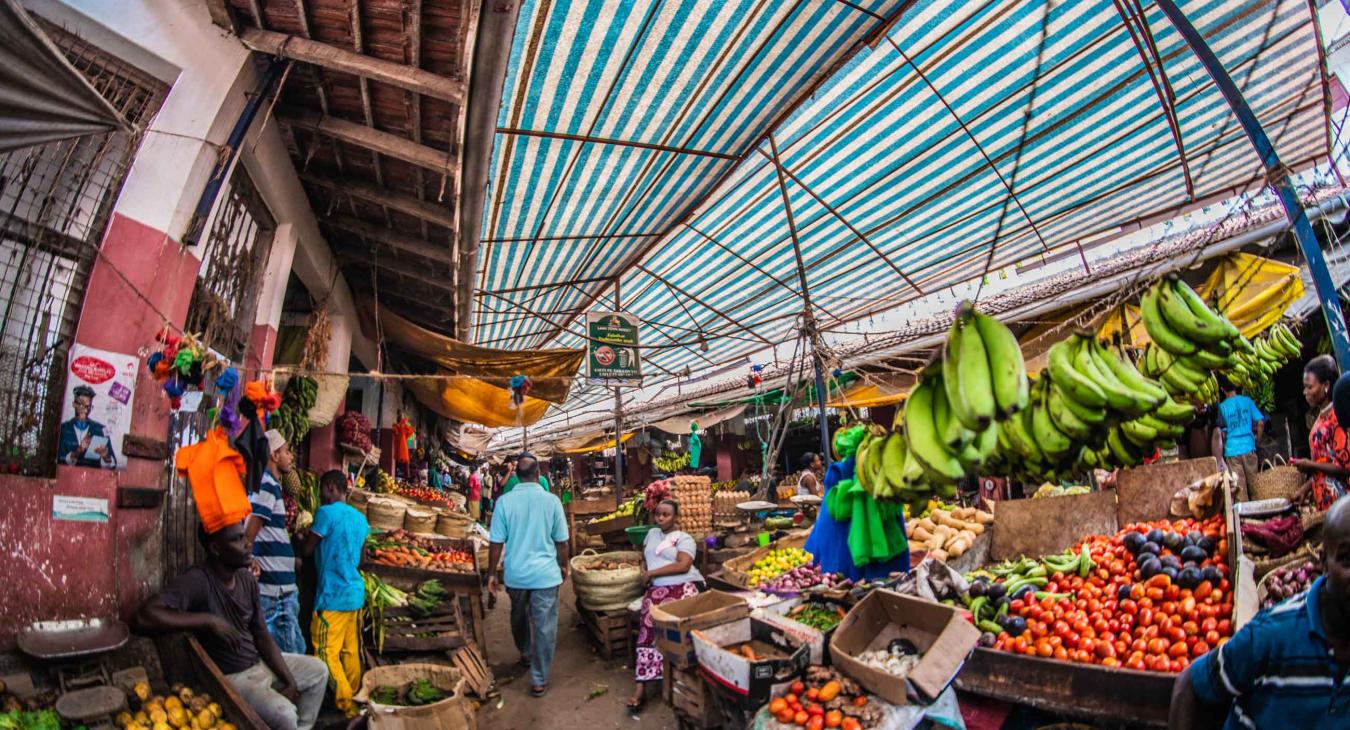Food culture, the set of contextual and cultural norms shaping food supply and consumption, is evolving in countries around the globe, including Ghana. A recent report commissioned by the Data Repository and Advocacy for Policy (DARAP) project delves into the changing landscape of Ghana’s food culture and its associated supply sources.
The study, "Food Balance: Changing Food Cultures and Supply Sources in Ghana" seeks to synthesize existing knowledge and data to illuminate the shifts in Ghana’s food culture over time. It forms part of DARAP’s commitment to harnessing data for informed policy advocacy.
Evolving food culture in Ghana
The report notes that Ghana's food culture is becoming increasingly diverse, mirroring the complexities of its civil and consumer society. Factors such as changes in agricultural practices, transformations in food supply chains, globalization, urbanization, economic development, changing dietary preferences, and technological advancements contribute to the rapid evolution.
While these changes offer new opportunities for consumers and producers, they also pose challenges. For example, shifts in dietary choices and food supply patterns may lead to health risks, environmental challenges, and a pressing need for sustainable food systems.
Finding a balance
Ghana faces the challenge of preserving its rich food heritage while adapting to new food cultures. This adaptation must prioritize nutrition, health, and sustainability. However, there is currently a lack of comprehensive national-level analysis regarding the implications of these changes.
“Finding the right balance between tradition and innovation will be key to fostering a resilient, nutritious, and sustainable food future for Ghana,” says lead researcher, Prof. Michael O. Adu of the Department of Crop Science, School of Agriculture, College of Agriculture and Natural Sciences, University of Cape Coast.
The study’s objectives
The "Food Balance: Changing Food Cultures and Supply Sources in Ghana" study aims to provide valuable data for policymakers and the public. Key objectives include synthesizing available knowledge and data on the changes in Ghana’s food culture, documenting food consumption trends and their drivers, and evaluating the effectiveness of government and non-government interventions in ensuring food sufficiency.
The study, with its comprehensive analysis of Ghana’s evolving food culture, serves as a valuable resource for policymakers and the public.
The research team also includes Dr. David O. Yawson of the Centre for Resource Management and Environment Studies (CERMES), Faculty of Science and Technology, The University of West Indies, Bridgeton, Barbados.
Food culture refers to the context and cultural norms that shape food supply and consumption. Food consumption patterns in a given jurisdiction depend on production and trade. This makes production and trade key drivers of food culture, while the transformation or transition of food culture, in turn, affects production and trade. There is a shift in food culture globally and Ghana, like many other countries, is experiencing evolution in its food culture due to national and international dynamics of food and trade.
As part of activities to utilize its data repository and existing research output to create new knowledge products input for policy advocacy, the DARAP project commissioned a study on the important topic of food culture. Titled “Food Balance: Changing Food Cultures and Supply Sources in Ghana” the study will synthesize available knowledge and data on how Ghana’s food culture and related supply sources have changed over time.
Ghana’s food culture is evolving
Ghana’s food culture is increasingly differentiating, possibly reflecting a more diverse civil and consumer society. Factors such as changes in agricultural practices and food supply chains, globalization, urbanization, economic development, shifts in dietary preferences, rising demand for convenience foods, health and wellness trends, and technological advancements may be accounting for the fast-evolving food cultures. While these changes may herald new opportunities for consumers and producers, they may also present some challenges. Shifts in dietary choices and food supply patterns may be associated with health risks, environmental challenges, and the need for sustainable food systems, for example.
There’s need to find a balance
Ghana must strike a balance between preserving its rich food heritage and embracing new food cultures in a way that promotes nutrition, health, and sustainability. Even so, there is a minimal national-level analysis of the changes in food culture and supply and their implications for nutrition, health, and sustainability.
The study
The study aims to provide data or information to feed into a repository of knowledge products available to policymakers and the general public. Among other objectives, it will synthesize available knowledge and data on how Ghana’s food culture and related supply sources have changed, document food consumption trends and the drivers of same, and evaluate the performance of central food-related government and non-government interventions towards food sufficiency in Ghana. Importantly, it will propose policy interventions.

